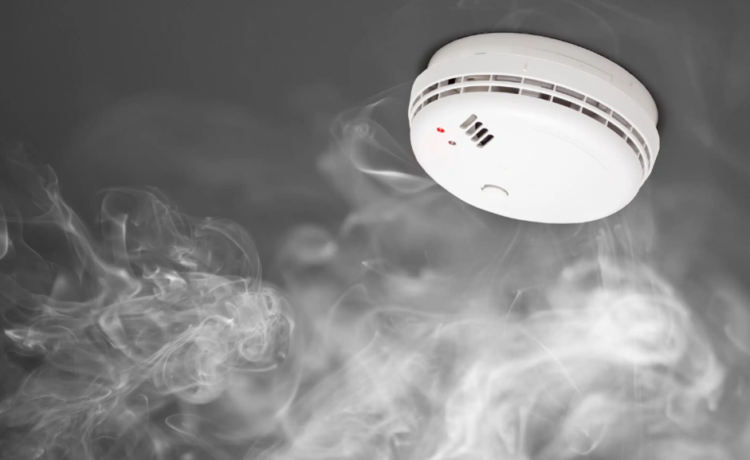Important safety tools, smoke alarms serve as a warning to people when there is smoke around, greatly lowering the possibility of harm or death in the case of a fire. To provide the highest level of safety for occupants, smoke alarms in residential buildings must meet strict specifications set out by law in Queensland, Australia. This article examines Queensland’s existing smoke alarm laws, including who is in charge, what kinds of alarms are necessary, and when these laws are in effect.
1. Duty to Adhere
In Queensland, the main responsibility for ensuring that smoke alarm rules are followed is on property owners, landlords, and agents. They have to ensure that the property conforms with all relevant smoke alarm legislation. Respecting rules is necessary for legal as well as occupational safety reasons.
2. Types of Properties Covered
The rule applies to all residential properties in Queensland, including residences, flats, townhomes, and other buildings meant for human occupancy. This broad covering ensures that every resident, regardless of the kind of house, is adequately protected against the dangers of fire.
3. Conditions for Both New and Old Homes
New Houses
Certain smoke alarm criteria must be satisfied for newly built homes or homes undergoing major modifications. Among these prerequisites are:
- Installing linked photoelectric smoke detectors in every bedroom
- Installing linked photoelectric smoke detectors in corridors connecting bedrooms to the main house
- Smoke alarms should be installed on every floor of the house, especially in places that are not usable like garages.
By requiring early detection of any possible fire hazard, these regulations hope to provide residents enough time to safely escape.
Current Residences
The law provides a staggered compliance timeframe for existing homes. All homes that are sold or leased by January 1, 2022, must have:
- Every bedroom has a linked photoelectric smoke alarm.
- Photoelectric smoke alarms with interconnecting networks installed in corridors connecting bedrooms to the rest of the house
- Every floor of the house has smoke alarms, both in liveable and non-habitable spaces.
This incremental strategy gives landlords and property owners enough time to update their outdated smoke alarm systems to comply with modern safety regulations.
4. Conditions for Tenants and Landlords
Owners of Land
Landlords must do the following:
- Make sure smoke alarms are placed following the law.
- Smoke alarms should be tested and cleaned at least once per year.
- If a smoke alarm isn’t functioning properly or has reached the end of its useful life, replace it.
Rental Properties
Tenants are accountable for:
- As specified in their leasing agreement, smoke alarms should be tested and cleaned regularly.
- Notifying the landlord or property agent as soon as possible of any problems with the smoke alarms
- not taking down smoke alarms or messing with how they work
By ensuring that smoke alarms continue to operate as intended when called upon, these duties contribute to preserving their operational integrity.
5. Repercussions for Failure to Comply
Ignoring Queensland’s smoke alarm laws might carry heavy fines. These sanctions might include fines as well as, should a fire strike, potentially legal consequences. Landlords, renters, and property owners have to thereby grasp and follow their legal obligations.
6. Advantages of Photoelectric Interconnected Smoke Alarms
When compared to conventional smoke detection systems, linked photoelectric smoke alarms provide several benefits. Among these advantages are:
- Early Detection: They identify smoke rapidly, giving residents advance notice.
- Interconnection: Every alarm on the property sounds at the same time when one detects smoke, notifying everyone inside.
- Reliability: Compared to ionisation alarms, they are less likely to have false alerts from steam or cooking odours.
- Compliance: They guarantee landlords’ and property owners’ legal compliance by adhering to Queensland’s existing legislation standards.
7. Tools and Assistance for Adherence
Landlords, renters, and property owners may all get assistance and resources to help them adhere to smoke alarm laws:
- Government Websites: For comprehensive details and guidance on smoke alarm regulation, see the official websites of the Queensland government.
- Local Authorities: For information on smoke alarm regulations, get in touch with your neighbourhood council or fire department.
- Professional Services: To guarantee compliance and safety, use certified fire safety specialists or licenced electricians to install, test, and maintain smoke alarms.
In summary
The major goal of Queensland’s smoke alarm rules is to ensure resident safety by ensuring that smoke is detected in residential structures efficiently. Queensland wants to lower the number of people injured or killed in home fires by mandating the installation of connected photoelectric smoke alarms in strategic locations. Apart from being mandated by law, adherence to these standards is crucial in safeguarding people and belongings from the catastrophic force of fire.






